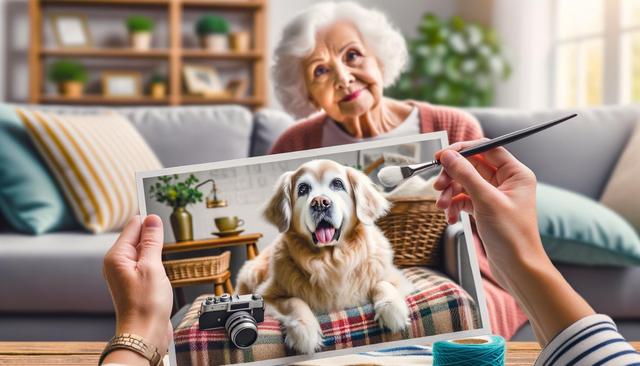The Positive Impact of Pet Companionship on Senior Well-being
For older adults, loneliness and social isolation can be significant challenges, especially after retirement or the loss of a spouse. Pet adoption offers a meaningful solution by introducing a source of unconditional love and daily interaction. Studies have shown that having a pet can reduce stress, lower blood pressure, and even improve cognitive function in seniors. The constant presence of a furry companion provides emotional stability and can help reduce symptoms of anxiety and depression.
Beyond emotional support, pets create a structured routine for their owners. Daily feeding times, short walks, or simple grooming responsibilities help seniors maintain a sense of purpose. This regularity can also improve sleep patterns and overall mental alertness. Additionally, pets often become a topic of conversation, improving social engagement with neighbors, friends, and family.
Choosing the Right Pet for a Senior Lifestyle
Not every pet is suitable for every individual, and this is especially true for seniors. It’s important to consider energy levels, care requirements, and compatibility with a senior’s physical abilities and living arrangements. Many adoption programs guide seniors toward animals that are already trained, have calm temperaments, and are in need of a second chance at a loving home.
Some good pet choices for older adults include:
- Small to medium-sized dogs with low to moderate energy
- Older cats that are already litter trained and less active
- Birds or fish for those who want companionship without intensive care needs
Animal shelters and senior-focused adoption programs often assess both the pet’s needs and the potential adopter’s lifestyle to ensure a good match. This thoughtful process increases the chance of a successful, long-term relationship between the senior and their new companion.
Empowering Seniors Through Pet Adoption Programs
Specialized pet adoption programs are making it easier for seniors to welcome animals into their lives. These initiatives often reduce or waive adoption fees, provide starter kits with essential supplies, and offer guidance throughout the adoption process. Some programs even include follow-up support to ensure a smooth transition and continued well-being for both the pet and the owner.
These programs are designed with empathy and practicality, focusing on:
- Matching seniors with pets that suit their lifestyle
- Providing access to affordable veterinary care
- Offering educational resources on pet care for older adults
By addressing the unique needs of the senior population, these programs help build confidence and independence. Seniors feel supported, knowing they can rely on the program for help when needed, which encourages more of them to consider pet adoption as a viable option.
Health and Safety Considerations for Senior Pet Owners
While pets offer many benefits, it’s essential to consider the health and safety of both the senior and the animal. Mobility issues, allergies, and cognitive impairments can affect the ability to care for a pet. Fortunately, many older pets require less physical activity and are already house-trained, making them ideal companions for seniors with limited mobility.
To enhance safety and comfort, seniors may consider:
- Installing pet gates or ramps for easier movement
- Using automatic feeders and water dispensers
- Scheduling regular veterinary check-ups
Family members and caregivers also play a vital role. They can assist with tasks that may become difficult over time and ensure the well-being of both the pet and the senior. With proper planning and support, pet ownership can remain a sustainable and enriching experience well into the later stages of life.
Community Engagement and Emotional Enrichment
Pet adoption does more than fill a home with joy; it also connects seniors to their broader community. Many seniors discover new social opportunities through pet-related activities such as dog walking groups, visits to pet-friendly parks, or participation in local animal shelter events. These interactions help combat isolation and build a renewed sense of belonging.
Furthermore, pets can inspire seniors to stay active and engaged. Whether it’s a short walk around the neighborhood or a trip to the vet, these activities contribute to increased physical movement and mental stimulation. In some cases, seniors even become ambassadors for pet adoption within their communities, sharing their experiences and encouraging others to open their homes to an animal in need.
Volunteering at shelters, joining pet care workshops, or simply chatting with neighbors during pet walks can add layers of meaning to daily life. These engagements not only benefit the senior but also raise awareness about the importance of giving older animals a second chance through thoughtful adoption.
Conclusion: A Shared Journey of Companionship and Purpose
For seniors seeking companionship, structure, and emotional support, pet adoption offers a deeply rewarding path. With tailored programs that understand the unique needs of older adults, adopting a pet becomes more accessible and manageable. These relationships often lead to improved mental health, increased physical activity, and greater community involvement.
By embracing pet adoption, seniors are not just helping animals in need—they are enriching their own lives with love, connection, and purpose. Empowering seniors through these programs creates a positive ripple effect, benefiting individuals, families, and communities alike.




Leave a Reply